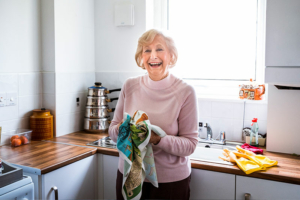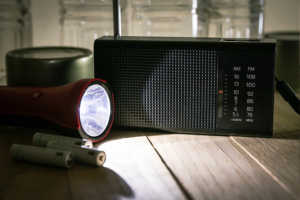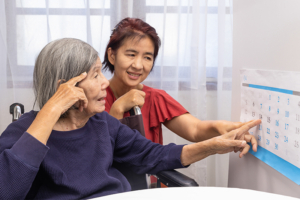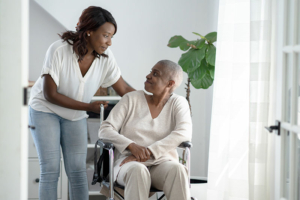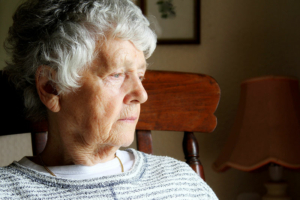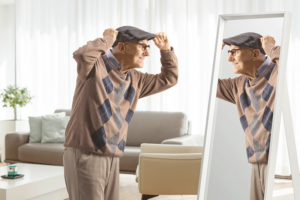How to Create Meaningful Holiday Traditions for Seniors With Dementia

Holiday traditions for seniors with dementia involve some careful planning and adaptation.
What could be more nostalgic than the time-honored tradition of pulling out holiday decorations, revisiting the memories they spark, and making each area of the home fun and festive? It’s an activity everyone in the family can participate in. Yet there are some special considerations to keep in mind when someone you love is struggling with the challenges of dementia.
Enjoy decorating and other holiday traditions for seniors with dementia with these tips:
Simplify the Process
When decorating with a loved one who has dementia, simplicity is key. A complex decorating scheme can lead to confusion and frustration, so aim for straightforward tasks that allow for participation without overwhelming them.
Consider focusing on a few specific areas in the home rather than trying to decorate every room. Maybe you choose to adorn just the living room and the front door. Keeping it manageable helps prevent overstimulation.
Select decorations that are easy to handle and don’t require extensive assembly. For instance, opting for pre-lit garlands or simple ornaments can make the process smoother. This way, your loved one can feel involved without the stress of complicated tasks.
Involve Them in Meaningful Traditions
Holidays are steeped in tradition, and involving a loved one with dementia in familiar activities can help spark joy and comfort. Think about the decorations they have loved in the past. Perhaps they used to hang ornaments on the tree with you or bake special cookies together. Recreating these moments, even if simplified, can reignite warm memories.
As you decorate, talk about the significance of each item. Share stories behind certain ornaments or decorations, reinforcing their connection to family history. This makes the process more enjoyable and also allows for bonding over shared memories, even if those memories are fleeting.
Create a Safe and Comfortable Environment
Safety should always be a priority when decorating with a loved one who has dementia. As you bring out decorations, be mindful of potential hazards. Avoid decorations that are sharp, breakable, or could be choking hazards. If using lights or other electrical decorations, ensure that cords are tucked away and don’t pose a tripping risk.
Create a comfortable space where the person can participate in decorating without feeling overwhelmed. Designate a small area where they can help—maybe by sorting ornaments or placing non-breakable decorations on low tables. You can also incorporate sensory elements into the experience. Let them touch the textures of the decorations, smell seasonal scents like pine or cinnamon, and enjoy the vibrant colors of the holiday décor.
Be Patient and Flexible
Patience and flexibility are essential in any activity with someone with dementia. There may be moments of confusion or forgetfulness, and that’s perfectly okay. Instead of feeling frustrated, take a deep breath and remind yourself that the goal is to create a joyful atmosphere, not to achieve perfection.
If the person seems overwhelmed or loses interest, take a break or shift activities. Consider incorporating short bursts of decorating followed by some relaxation time. This way, they can participate at their own pace and stop whenever they become tired.
Celebrate Small Moments of Joy
Pay attention to the little things! Take time to celebrate any small victories, like hanging the first ornament or arranging the table. Engage in conversations about what they enjoy, and don’t hesitate to share your excitement for the season.
Capture these moments with photos. Not only does this create a keepsake to cherish, but it also allows the person to reminisce and feel involved in the holiday spirit long after the decorations are up.
Creating New Traditions Together
The holidays may not look the same when a loved one has dementia, but the new traditions you create together can be just as meaningful. Remember that Responsive Home Care is here to help as well, before, during and after the holidays. Our specialized dementia care team goes above and beyond to make each day brighter for the individuals we serve.
Contact us to find out more about our in-home dementia care in Fort Lauderdale, Deerfield Beach, Parkland, and the surrounding areas in Broward County.

